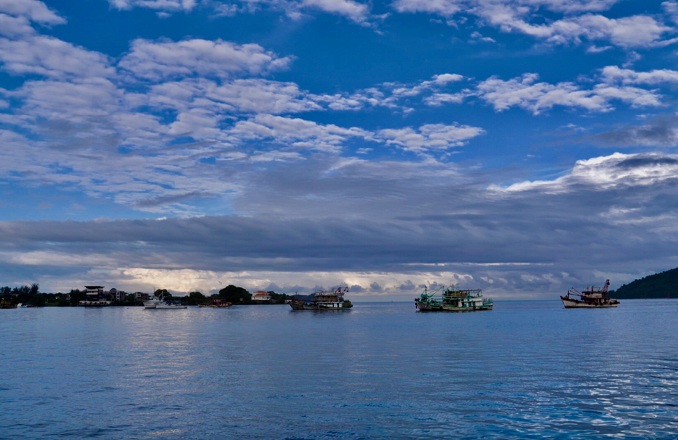

Sabah is the second largest state of Malaysia, located to the north of Borneo Island. It has become one of the most popular destinations for Chinese tourism in recent years, with over 360,000 Chinese tourists traveling to the state over the first eight months of 2018, a year-on-year increase of 44 percent.
Liang Caide, Consul-General at the Consulate General of the People's Republic of China in Kota Kinabalu explained, "Sabah's popularity benefits from its abundant tourism resources. Firstly, the scenery in Sabah is gorgeous, with beautiful tropical islands and unique marine ecosystems. The water is clear, the sand is soft, and the sky and sea are so blue. Second, Sabah is of great convenience in terms of transportation. More than ten major Chinese cities are linked to Sabah by air, with over 100 direct flights operating every week. Third, people in Sabah have folk customs. They are hospitable. A wide variety of ethnicities, religions and cultures co-exist peacefully in Sabah. This is Sabah's distinguishing feature, making it truly shine."

(People's Daily Online/Liu Ning)
This year marks the fifth anniversary of the launch of the Belt and Road Initiative, and Sabah is benefiting from it.
"As the Belt and Road Initiative continues to develop at full speed, cooperation between China and Sabah on many fronts has grown closer than ever. More and more Chinese companies have developed a strong interest in Sabah and have been paying close attention to it, looking for investment opportunities here," said Liang.
Companies like China State Construction Engineering Corporation, China Railway Group, State Power Investment Corporation,Guangdong Guangken Rubber Group, and PetroChina have already arrived in Sabah.
The investment projects of these companies cover areas such as infrastructure, real estate, tourism, hotels, planting, electricity and energy.

(People's Daily Online/Liu Ning)
Liang adds, "Chinese companies have not only brought funds and technologies to Sabah, but have also created more employment opportunities for local people, pushed the development of local infrastructures and other industries, and injected a fresh boost to the local economy. The potential is huge with promising prospects. As the Consulate General, we will continue to expand cooperative grounds for both, improve the quality of cooperation and further promote effective integration of the Belt and Road Initiative and the Sabah Development Corridor in the local area."

 Award-winning photos show poverty reduction achievements in NE China's Jilin province
Award-winning photos show poverty reduction achievements in NE China's Jilin province People dance to greet advent of New Year in Ameiqituo Town, Guizhou
People dance to greet advent of New Year in Ameiqituo Town, Guizhou Fire brigade in Shanghai holds group wedding
Fire brigade in Shanghai holds group wedding Tourists enjoy ice sculptures in Datan Town, north China
Tourists enjoy ice sculptures in Datan Town, north China Sunset scenery of Dayan Pagoda in Xi'an
Sunset scenery of Dayan Pagoda in Xi'an Tourists have fun at scenic spot in Nanlong Town, NW China
Tourists have fun at scenic spot in Nanlong Town, NW China Harbin attracts tourists by making best use of ice in winter
Harbin attracts tourists by making best use of ice in winter In pics: FIS Alpine Ski Women's World Cup Slalom
In pics: FIS Alpine Ski Women's World Cup Slalom Black-necked cranes rest at reservoir in Lhunzhub County, Lhasa
Black-necked cranes rest at reservoir in Lhunzhub County, Lhasa China's FAST telescope will be available to foreign scientists in April
China's FAST telescope will be available to foreign scientists in April